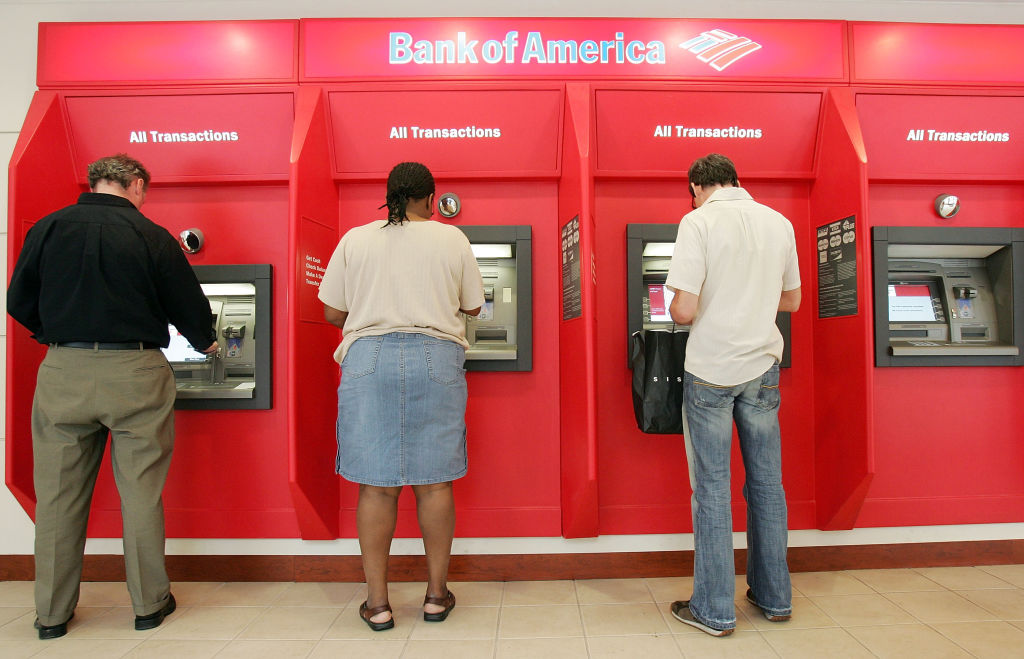
On Wednesday morning, Bank of America customers began reporting issues with payments processed through the money transfer service Zelle, which led to money disappearing from their accounts.
Many customers took to Twitter to express their outrage as they began to notice the missing funds.
One user tweeted, “I almost lost my mind when I saw $2,000 was missing from my account.”
Another said, “So cool how @BankofAmerica magically disappeared a large Zelle transaction that HAD ALREADY POSTED and I had used to pay bills. Now I’m extremely in debt in my checking and I can’t get ahold of them. Unbelievable.”
Zelle is a money transfer service that works with U.S. banks to move funds directly from one bank account to another. Zelle transfers are quick and free––making the service a popular alternative to credit card transactions that can take a few days to hit users’ accounts and often require fees and bank transfers. However, the service has been under fire by government officials for being an easy facilitator for fraud and theft. Zelle does not offer any protection for payments made through their services—which means that there’s no safeguard for customers if a transaction goes wrong.
The website downdetector.com reported over 1,000 outage reports for Bank of America by 10:30 a.m. EST Wednesday, coupled with a similar spike in Zelle outage reports.
Over a customer support social media account, Zelle redirected users to Bank of America, saying, “The Zelle App & Network are up & running. We are aware of an issue that is impacting Bank Of America customers when sending & receiving payments. We recommend contacting Bank of America’s customer support team for additional updates.”
Bank of America told TIME that, as of 3:00 p.m. EST Wednesday, the issue was resolved and customers were receiving their funds back.
The Charlotte Observer reported that customers received a notice when they logged into their online bank accounts on Wednesday, saying that transactions were not missing, but delayed.
More from TIME
“Zelle transactions made between January 14th and January 17th may be delayed in occurring and posting to accounts as requested,” the notice said. “Transfers will be completed and will appear in your account activity and balances as soon as possible.”
Zelle provided a statement to TIME on Thursday reading: “We understand that a Zelle Network® financial institution may have experienced issues processing some of their customers’ Zelle® transactions, which has now been resolved. This issue was not the result of any issues with the Zelle Network®.”
In 2020, Bank of America customers reported another major glitch, with accounts showing inaccurate balances of as little as $0. The company acknowledged the issue, saying at the time that any inaccuracies did not impact their actual funds. “Some clients may currently see an inaccurate account balance in online or mobile banking. There is no impact to their accounts and their information remains secure,” Bank of America said.
Global payment service ACI Worldwide reported last year that fraud loss in the United States from Authorized Push Payments—scams that trick victims into willingly making large bank transfers to fraudsters—is expected to rise to $3 billion in 2026.
In a report issued last fall, U.S. Senator Elizabeth Warren said four banks provided data reporting over 190,000 cases of fraudulent transactions on Zelle involving over $213 million of payments in 2021 and the first half of 2022. In the majority of the cases, the report noted, individuals were not repaid the amount they were defrauded.
Warren called out both services on Twitter Wednesday afternoon, writing “@BankofAmerica and @Zelle are apparently failing customers again, with money somehow disappearing from accounts. This should be fixed immediately and customers should be compensated. I’ve called out serious fraud issues on Zelle and this is their latest failure.”
More Must-Reads From TIME
- The 100 Most Influential People of 2024
- Coco Gauff Is Playing for Herself Now
- Scenes From Pro-Palestinian Encampments Across U.S. Universities
- 6 Compliments That Land Every Time
- If You're Dating Right Now , You're Brave: Column
- The AI That Could Heal a Divided Internet
- Fallout Is a Brilliant Model for the Future of Video Game Adaptations
- Want Weekly Recs on What to Watch, Read, and More? Sign Up for Worth Your Time
Write to Simmone Shah at simmone.shah@time.com